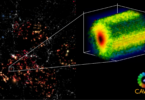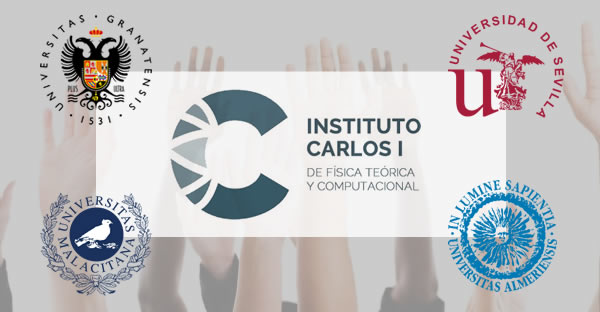The member of IC1, Francisco Pérez-Bernal, has recently published a very interesting paper in Physical Review B.
Self-averaging is a very important concept in statistical physics. It ensures that for big enough systems you can reduce the number of samples in experiments and statistical analysis. Lack of self-averaging is troublesome, as it implies that you need to average over ensembles in order to get a good statistic.
This paper addresses the problem of self averaging during the time evolution of interacting many-body quantum systems. To do so, they use the so-called Gaussian orthogonal ensemble (GOE) and a chaotic spin model. They use different measures to analyse this problem, including the survival probability (the probability of finding the system in its initial state after a time t), the inverse participation ratio (that measures the spreading of the state), and Rényi entropies.

Survival probability as a function of time for the GOP (Left) and the spin model (Right).
The authors conclude that self-averaging is not a general property of chaotic quantum systems, and it depends strongly on the quantity and on the time scale. This is a very interesting result with applications to experimental fields as cold atoms and ion traps.
Reference: M. Schiulaz, E. J. Torres-Herrera, F. Pérez-Bernal, and L.F. Santos. Self-averaging in many-body quantum systems out of equilibrium: Chaotic systems. Phys. Rev. B 101, 174312 (2020).






